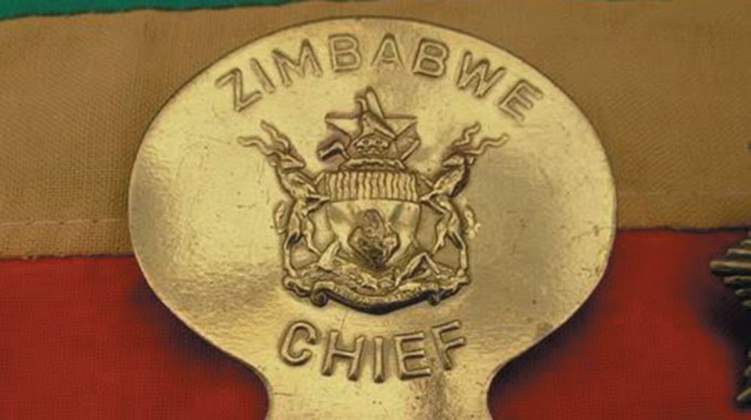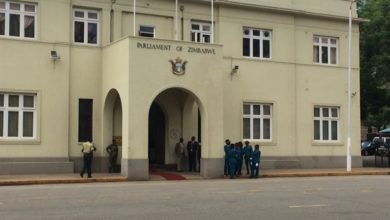Mvuthu chieftainship wrangle rages on

After the National Chiefs Council endorsed Silibaziso Mlotshwa’s ascendancy to the Mvuthu chieftainship in Matabeleland North, some members of the Mlotshwa family still claim she is not the rightful heir.
Silibaziso (26) is the eldest daughter of the late Chief Mvuthu, who was born Nyangayeziwe Mlotshwa and died in March 2014.
According to Nguni customs, the late chief was supposed to be succeeded by his eldest child, Silibaziso in this case.
According to reports, Chief Mvuthu passed his stick to Silibaziso shortly before his death so she could succeed him.
Other Mlotshwa family members argued that they do not believe a chief is chosen by default, noting that some chiefs, such as Xukuhuthwayo, Mvuthu, and Nyangayeziwe, were not first born but were chosen on merit.
Currently, the family is divided, with some supporting Silibaziso and others supporting Sanders, whose father was the late Chief Mvuthu’s younger brother, Simeon.
When Sanders was nominated as chief, Silibaziso filed a legal challenge, claiming she was the rightful heir.
The National Chiefs Council dispatched members of the Matabeleland North Chiefs Assembly to the Mlotshwa family in 2020 to investigate the matter.
The Matabeleland North Chiefs Assembly recommended to the National Chiefs Council that Silibaziso be appointed as her father’s successor, and the matter was communicated to the Zimbabwe Gender Commission.
Bessy Mlotshwa, Sanders’ younger sister, claimed in an interview with CITE that there was some political interference in the matter as some people were pushing for Silibaziso to be installed as the chief.
“Due to political interference, the case has been decided on a gender basis. This woman is not originally a Mlotshwa, as she was born from an illegitimate house. Sanders Mlotshwa is the rightful heir. The Mlotshwa family chose him. This woman chose herself after claiming that her father told her that,” she said.
“There are sellouts among the family members who have been given money to prop up Silibaziso. They appear to have received funds from an unnamed politician.”
Mlotshwa bemoaned the use of gender in the case, claiming Silibaziso’s grandfather was an illegitimate child of the Mlotshwa family.
“We want this known. Her grandfather Abednigo, father to her father (Chief Mvuthu), is from Zambia, so she is not a member of the Mlotshwa homestead. As a result, when Abednigo died, some Zambians came to perform certain customs. They came all the way from Zambia for the memorial service. We don’t know who had invited them. We are born from the main house and should be in charge of what is happening,” she said.
“Even during Abednego’s swearing in ceremony in 1973, his mother objected because she knew he wasn’t the rightful heir to the chieftainship. She became so enraged that she went to live in the bush. Even my father, Tebele’s (Abednego’s) younger brother, protested and eventually gave up. He died without entering the homestead and stopped participating in family activities because he knew Abednego did not belong there. It’s no secret that the woman is not from the Mlotshwa family.”
Mlotshwa lamented that the Mvuthu chieftainship vacancy has taken too long to fill because Headman Bishop Matata Sibanda has been acting since Chief Mvuthu’s death in 2014.
“It is not proper for one to act for more than five years but Matata Sibanda has been acting since then,” she said.
According to one researcher, Thembumdali Ngwane, in an excerpt on the Mvuthu chieftainship, it was difficult for Abednego to be crowned as chief because there was a squabble between him and his father Tebele’s young brother Sikhathele Mlotshwa.
“Sikhathele believed that Abednego was an illegitimate son therefore the proper person to be crowned was supposed to be Simeon (Sander’s father),” he wrote.
“The man who intervened and convinced the whites (registry office) to not look into the matter but to proceed and install Abednego as chief was uSikhubo Khumalo, whose daughter was married to Abednego’s younger brother. Sikhubo was a very influential person who was liked by the whites (he was a retired in the correctional service) his homestead was in Chisuma No4 he was one of Amahindibulala.”.
According to the researcher, after Abednego’s death, Nyangayezizwe was crowned but died after only a short reign.
“In both funerals of Abednego and Nyangayezizwe, chiefs from Zambia came and performed rituals at the two funerals, they were also there at umbuyiso of Abednego performing. People were left with many questions as to whether they were related since they were said to be illegitimate, no one understood the interest of these Zambia people nor did they know who invited them,” he said.






